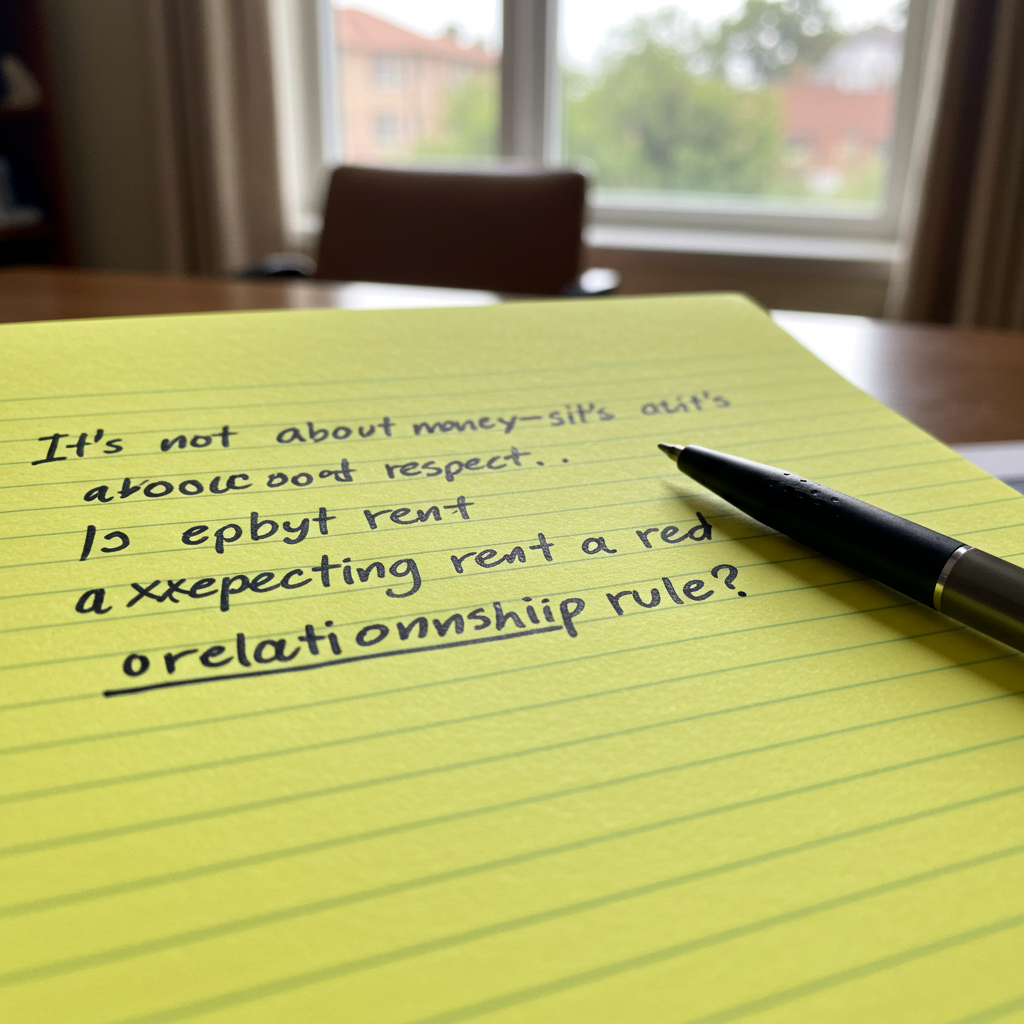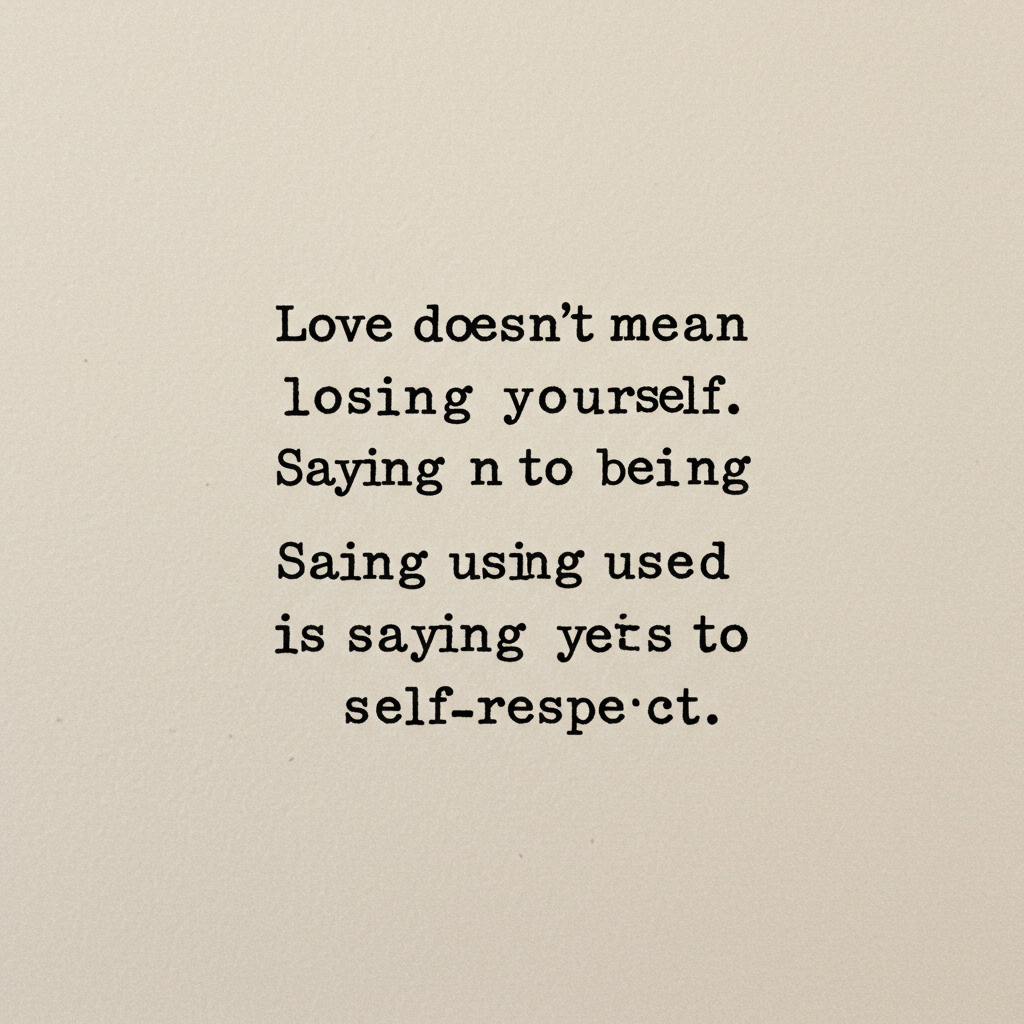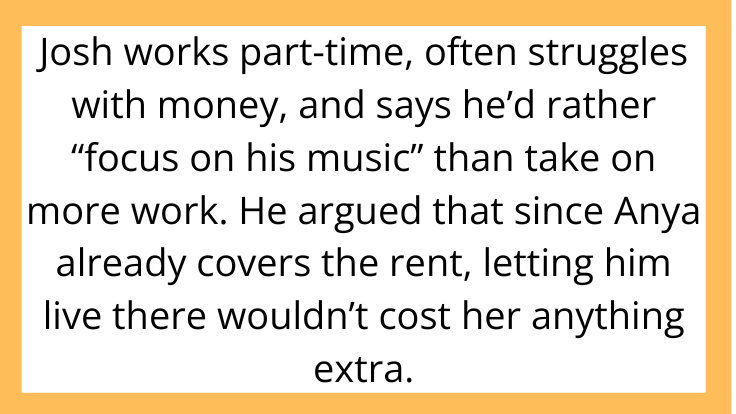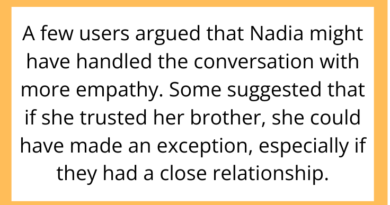AITAH for Not Letting My Boyfriend Move Into My Apartment Because He Doesn’t Pay Rent?
Living together is a big step in any relationship, especially when finances and responsibilities come into play. Today’s AITAH scenario dives into a situation where independence, money, and expectations collide—and not everyone agrees who’s in the wrong.
Here’s the full story.
The Situation: A One-Sided Living Arrangement

A 27-year-old woman—let’s call her Anya—shared her story on Reddit’s r/AITAH community. Anya lives in a one-bedroom apartment she pays for entirely on her own. She works a full-time job, manages her bills responsibly, and enjoys her quiet personal space.
Her boyfriend, Josh, 28, has been dating her for about 18 months. Lately, he’s been hinting—strongly—that he wants to move in.
But here’s the catch: Josh doesn’t want to contribute to the rent.
Josh works part-time, often struggles with money, and says he’d rather “focus on his music” than take on more work. He argued that since Anya already covers the rent, letting him live there wouldn’t cost her anything extra.
Anya disagreed—and said no.
The Conflict: Love vs. Responsibility

Josh didn’t take the rejection well. He accused Anya of being selfish and not taking the relationship seriously. He said couples are supposed to support each other and that expecting him to contribute financially was “capitalist nonsense.”
Anya stood her ground.
She told Josh that sharing a home means sharing responsibilities—including the rent. She worked hard to have her own place and wasn’t going to shoulder the financial and emotional burden of a live-in boyfriend who refused to contribute.
Now, the relationship is strained. Josh has pulled away, and mutual friends are taking sides—some saying Anya is right, others saying she’s treating the relationship like a business transaction.
So Anya turned to Reddit and asked: AITAH for not letting my boyfriend move in if he won’t pay rent?
Financial Boundaries in Relationships

Why Anya’s Stance Makes Sense
Let’s be honest—living together isn’t just about love. It’s also about logistics.
Rent, groceries, utilities, household chores—all of it requires teamwork. Anya already handles everything on her own. Adding another adult to the household who won’t contribute can feel more like taking on a dependent than gaining a partner.
In fact, many commenters on Reddit pointed out that what Josh is asking for isn’t a relationship milestone—it’s free housing.
And that’s a red flag.
Relationships thrive on mutual respect. Expecting your partner to support you unconditionally while you make no effort to contribute isn’t romantic—it’s entitled.
Josh’s Argument: Should Love Be Conditional?

To be fair, Josh may not be coming from a place of laziness—he may feel insecure about his financial situation or worry that his value in the relationship is being tied to money.
Plenty of people have non-traditional income streams or need support while building a creative career. But there’s a big difference between “I can’t contribute right now, but I’m working on it” and “I won’t contribute at all.”
Josh didn’t offer a compromise. He didn’t suggest splitting groceries, taking on more chores, or finding ways to contribute non-monetarily. He just expected Anya to say yes.
Reddit Responds: A Clear Verdict

The Reddit community was nearly unanimous: Anya is not the villain.
“You’re not his mom,” one top comment said. “He’s a grown man. If he wants to live with you, he needs to act like an adult.”
Another user wrote, “He wants the perks of a relationship with none of the responsibilities. You’re dodging a bullet.”
Several users even warned Anya to reconsider the entire relationship. If Josh is showing entitlement now, what will things look like five years down the line?
Setting Standards Isn’t Selfish

This scenario highlights a key truth: having standards isn’t mean, and protecting your peace doesn’t make you heartless.
Yes, relationships involve compromise—but they also involve boundaries.
Anya isn’t wrong to expect basic accountability from a live-in partner. Refusing to subsidize someone else’s lifestyle isn’t about greed—it’s about self-respect.
What Could They Do Next?

For Anya:
-
Continue holding boundaries. Respect is non-negotiable.
-
Have a conversation about shared values—financial independence being one of them.
-
Reevaluate the relationship if Josh continues to guilt-trip her.
For Josh:
-
Take responsibility for his own future.
-
Consider that living together is a shared responsibility, not a favor.
-
Decide whether he wants a true partnership—or just a free ride.
Final Thoughts: AITAH or Just Protecting Myself?

Anya’s story resonates because so many people—especially women—have been pressured to “just help out” at the expense of their own stability. But relationships shouldn’t be built on guilt or uneven sacrifices.
Wanting love doesn’t mean giving up your standards. And saying no to being taken advantage of doesn’t make you a villain—it makes you strong.



